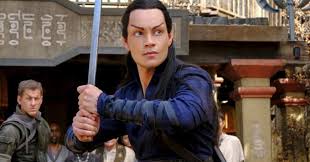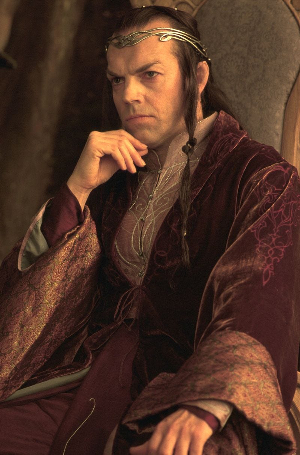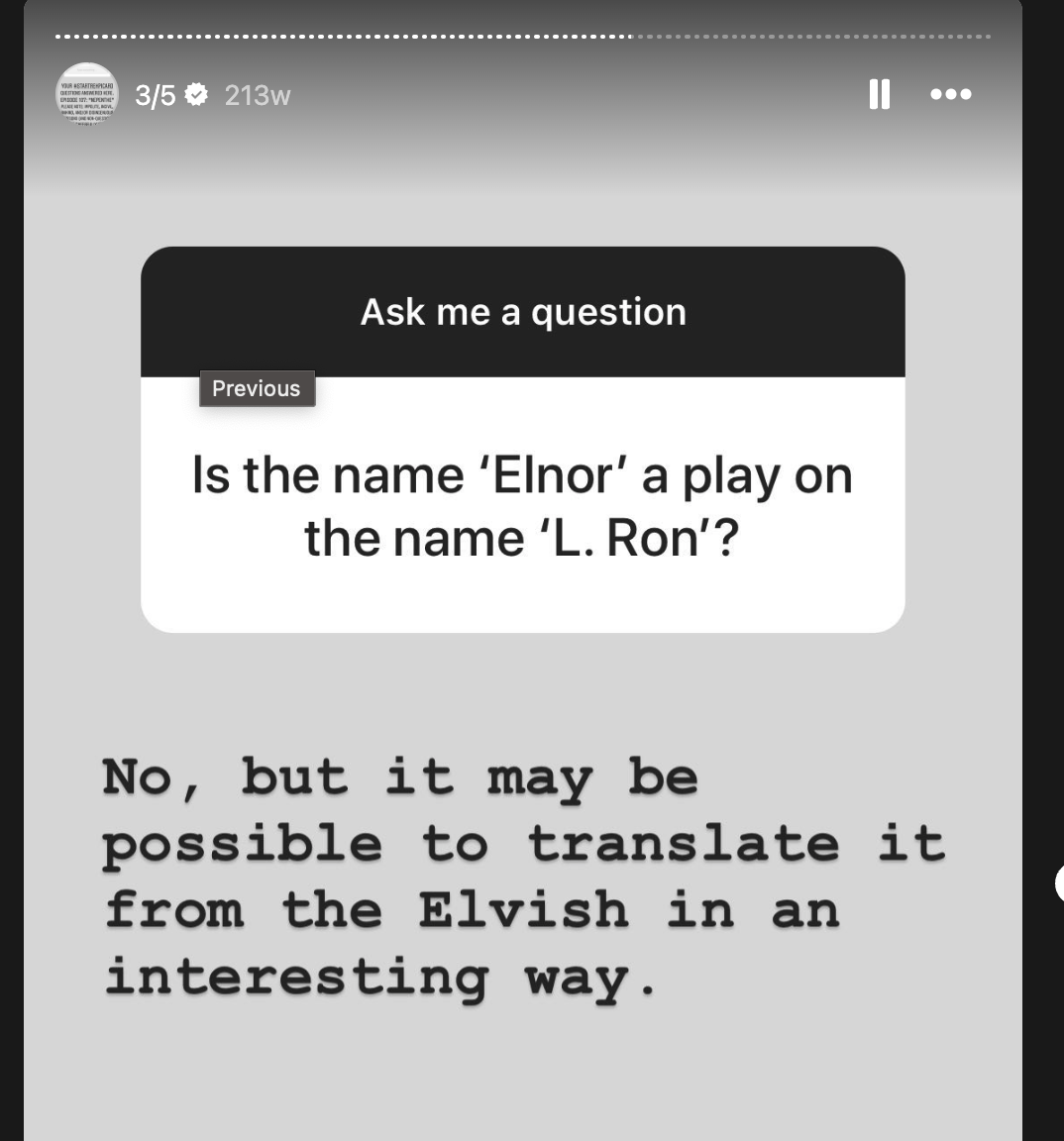Season 1 of Star Trek: Picard introduced new Romulan characters, including one rather benevolent hero named Elnor. Elnor was a survivor of a supernova event that destroyed Romulus (see: Star Trek 2009 Feature Film) and was relocated to the planet Vashti where he was raised and trained by the Qowat Milat, a group of Romulan warrior nuns!
Everything about Elnor from his name (see: "Elrond" below) to his looks (including Romulan pointy ears) and his long straight hair, or even his extraordinary, overly polite, yet direct manner ("absolute candor") and his child-like disposition, and even his initial clothing and fighting style with a tan qalanq (sword) is very reminiscent of many Elven characters presented in The Lord of the Rings franchise.
I know during some early scenes that The Three Musketeers is directly referenced as a book Picard would read to Elnor as child, but I was wondering if there might also be references or really, allusions to the Elves of Lord of the Rings as well, or any other Lord of the Rings references in Star Trek Picard that perhaps the executive producers, directors, writers or actors have mentioned? Even his eventual relationship with Seven of Nine and her association with the Fenris Rangers feels like a Lord of the Rings/Arthurian idea/plot/character dynamic.



